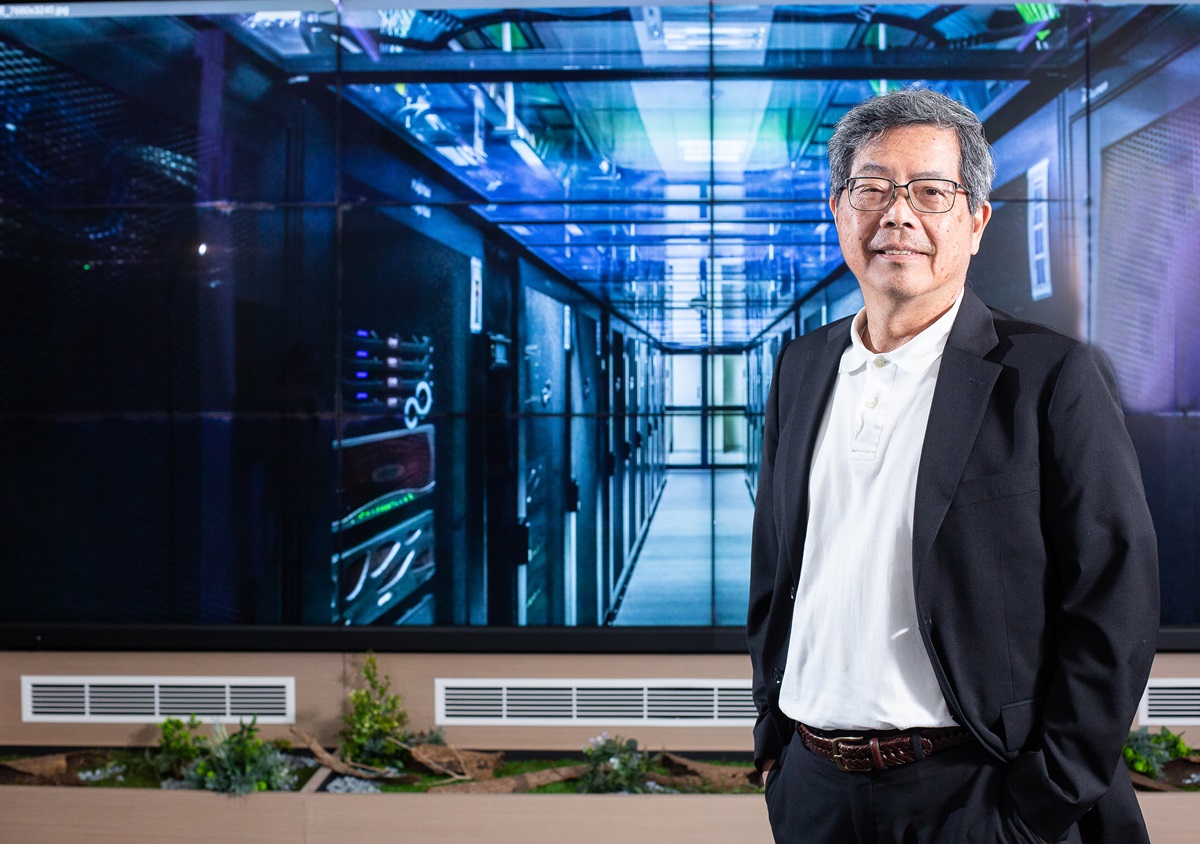Director's Vision: HPC Transformation
In the face of explosive data growth and increasingly complex global challenges, reliance on High-Performance Computing (HPC) is indispensable for overcoming these hurdles. National Center for High Performance Computing (NCHC) has been developing technologies and services to address these issues.
Digital transformation hinges not just on data storage and HPC infrastructure but more significantly on how HPC can fully unleash the potential of data through quantification, analysis, simulation, and modeling. This is the essence driving transformation.
The importance of simulation analysis is twofold. First, HPC transcends the limitations of reality, enabling researchers to swiftly comprehend physical phenomena or assess the efficacy of engineering products, thereby solving a myriad of engineering and scientific dilemmas. For instance, environments like space, Mars, or atomic structures, which are impossible to replicate in reality, thus computation becomes an essential tool for exploration and simulation in scenarios beyond the realm of physical experimentation.
When vast data is integrated with simulation, it enables the creation of digital twins. For example, while a country may possess extensive geospatial data, including topography and street maps, a true digital twin is dynamic, incorporating real-time data such as temperature and wind direction. It's the ability to animate this information that brings the concept of digital twins to life. Dynamic simulations allow for more precise analyses within digital twin environments. Furthermore, incorporating AI models can predict the likelihood of various outcomes for decision-makers based on historical data and experience.
Most developed countries not only recognize importance of HPC and AI, but also consider both as the key for national competitiveness. To assist various segments of the economy, in reducing the resource investment and technical barriers associated with HPC and AI, and to expedite the adoption of digital transformation, NCHC is developing a range of essential technologies and services, aiming to unlock new possibilities for societal advancement.
For instance, NCHC leverages fluid dynamics and computer science expertise to develop high-accuracy computing simulation platform, aiding scientific and engineering applications in simulating real-world physical phenomena and exploring the interactions between objects and their complex external environments. In the realm of solid mechanics, it has developed a cloud-based analysis platform for cross-disciplinary applications, enabling designers to rapidly and accurately evaluate the strength and deformation of structures, thus enhancing product quality.
In AI development, NCHC has created platforms to facilitate easy and rapid AI application development, such as a one-stop AI model marketplace for developing, testing, and deploying AI models. NCHC also participates in the TAIDE (Trustworthy AI Dialogue Engine) project, developing a large-scale language model training platform tailored to Taiwan's unique characteristics. With the recent explosion in generative AI development, NCHC continues to expand computational resources to support the rapid development and deployment of generative AI applications across various fields, using HPC's advantages to maintain Taiwan's competitive edge in global industries.
More importantly, the infrastructure and platforms developed by NCHC aim to advance the integration of virtual and physical realms and digital twins. By developing a three-dimensional spatial information platform, NCHC facilitates the architecture of real-world application scenarios. NCHC’s Cloud-based Smart Point Cloud Processing will bring highly accurate digital models to life, and NCHC's applications in smart transportation and intelligent detection have already yielded significant results using AI. Future applications will fully utilize physical models, IoT sensor data updates, and historical operational data, integrated with multidimensional HPC simulations, to achieve real-time monitoring, simulation, and decision-making in virtual spaces, ultimately realizing the vision of smart cities and promoting digital transformation.
Achieving this vision requires the efficient utilization of diverse resources and expertise. NCHC, with its multidisciplinary technical expertise in infrastructure management, platform development, and virtual-real integration engineering, along with its proficiency in networking and cybersecurity, ensures the safe use of data and platforms, shortens development timelines, and establishes effective AI models through cross-domain integration and collaboration.
Beyond internal cooperation, NCHC actively establishes practical collaborations with the academic and industrial sectors, introducing innovative ideas from different fields. Continuing to act as a catalyst for technological development, NCHC will assist the nation and industries in smoothly transitioning towards digital transformation.
NCHC Director General
Chau-Lyan Chang

 National Center for High-performance Computing
National Center for High-performance Computing